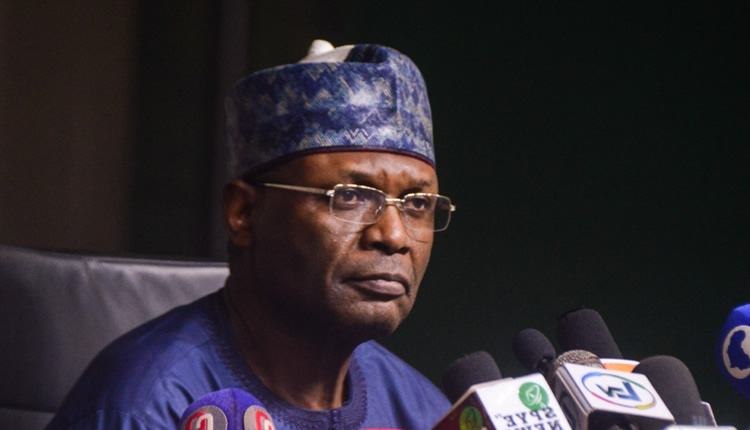The Independent National Electoral Commission (INEC) has suggested a groundbreaking shift in the voting process by introducing computer-generated voting slips as an alternative to the Permanent Voter Cards (PVCs). This development comes as the commission continues to integrate advanced technology like the Bimodal Voter Accreditation System (BVAS) into Nigeria’s electoral process.
During a quarterly consultative meeting with Resident Electoral Commissioners (RECs) in Abuja, INEC Chairman, Prof. Mahmood Yakubu, emphasized the need to reevaluate the role of PVCs in elections. He argued that relying solely on PVCs for voter accreditation is no longer practical given BVAS’s capability to authenticate voters through biometric verification.
Yakubu proposed that voters without PVCs could use computer-generated slips issued by the commission or even download them directly from its website.
“This is followed by 48 recommendations that require action by a variety of stakeholders, including security agencies, mobile network operators, statutory bodies, political parties, transport unions, civil society organisations, and the media.
“On the legal review, there are eight recommendations that require legislative actions by the National Assembly. Very soon, the Commission will make a presentation to the Joint Committee of the Senate and House of Representatives on Electoral Matters as they continue to deliberate on electoral reform.
“Among the major highlights of the Commission’s recommendations is the imperative of legal clarity in result management with regard to manual transfer versus the electronic transmission of results.
“The Commission also believes that with the introduction of the Bimodal Voter Accreditation System (BVAS), the use of the Permanent Voters’ Cards (PVC) as the sole means of identification for voter accreditation on Election Day should be reviewed.
“Those who already have the PVCs can still use them to vote, but going forward, computer-generated slips issued to the voter or even downloaded from the Commission’s website will suffice for voter accreditation. This will not only save costs; it will also eliminate the issues around the collection of PVCs and the diabolical practice of buying up the cards from voters in order to disenfranchise them.
“The review report also contains recommendations on early/special voting for the millions of Nigerians who do not vote at the moment on account of the roles they play during elections, such as INEC officials, security personnel, ad hoc staff, observers, and journalists who are deployed outside the places where they registered to vote.
“There are also recommendations in support of diaspora voting, the unbundling of the Commission with the establishment of an electoral offences tribunal, and a separate agency to handle the registration and regulation of political parties. Similarly, the Commission will step up action on voter access and distribution to polling units,” he added.
“Furthermore, the Commission intends to review the mechanisms for a more effective implementation of agreements on logistics with the transport unions and other service providers by consolidating on the recent experience with early deployment and commencement of elections in the recent Ondo State Governorship election,” Yakubu added.










